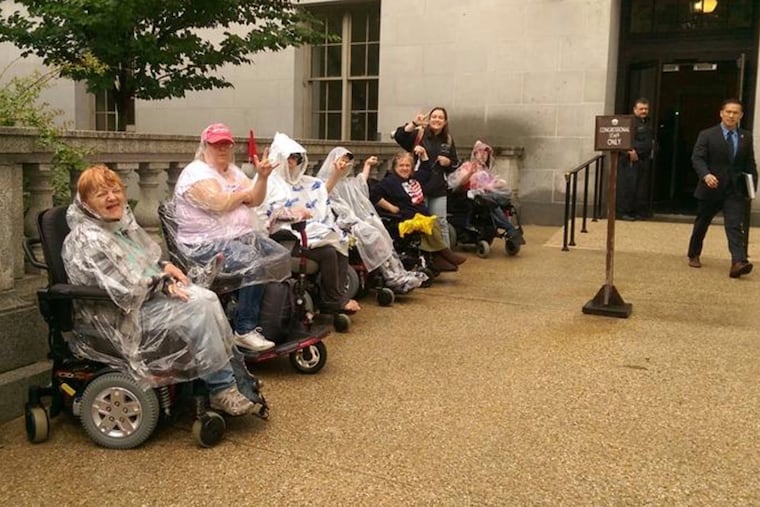To solve staffing shortages, hire more workers with disabilities | Opinion
It’s not just the right thing to do. It’s also good business sense.

As the world continues to fight against COVID-19, organizations are struggling to keep their doors open and their teams fully staffed with quality workers. The “Great Resignation” has seen millions of workers leaving their jobs to access better opportunities. One often-overlooked population — people with disabilities — could be the solution to massive staffing shortages.
Hiring workers with disabilities isn’t just the right thing to do. It’s also good business sense. National employment studies show that people with disabilities have equal or higher performance ratings, better retention rates, and less absenteeism than their peers without disabilities.
People with disabilities are the largest minority group in the country, yet they are underrepresented in the employment market. The U.S. Department of Labor reported that in 2020, only 17.9% of people with disabilities were employed. This number is especially stark when you compare it with people without disabilities: 61.8% were employed in 2020.
Some might argue that because many people with disabilities are immunocompromised, employers are hesitant to hire members of the community during a pandemic. To this, I would respond that employees with disabilities should be treated just like any other employee. If given an opportunity, individuals and their families should be able to evaluate the risks and benefits of a job and move forward with a decision that works best for them.
An additional barrier that many employees with disabilities face is a lack of access to transportation and being unfamiliar or uncomfortable with a specific working environment. With the labor market shifting to support more and more remote workers, this creates additional opportunities for employers to create job pathways for people with disabilities that are accommodating and fit their needs.
The Americans with Disabilities Act paved the way for people with disabilities to enter the workforce. For more than 30 years, people with disabilities have proven that the barriers we place on them cannot, and do not, hold them back. People with disabilities continue to work successfully in various sectors across the nation, with many even owning businesses that employ and pay others with disabilities.
Here in Pennsylvania, some businesses are already providing accommodations and support for employees with disabilities in the right way. Bake Ability in Buckingham, which employs 18 people with intellectual disabilities, goes out of its way to accommodate travel schedules and focuses on the abilities of its employees rather than what they can’t do. (Full disclosure, my organization partners with Bake Ability to provide training and accessibility support.) Monkey’s Uncle, a retro T-shirt shop in Doylestown, also offers employment opportunities to people with disabilities while ensuring a sensory-friendly environment.
Truly inclusive employment relies on buy-in from all members of the organization. That is where business leaders come in. If we took all the people with disabilities in Pennsylvania who not only want to work but are fully capable of working and connected them with jobs in fields that are struggling to recruit staff, it would be a win-win situation.
The main barrier is stigma. Even in a staffing crisis, entry-level opportunities for people with disabilities are hard to find. And all too often, HR initiatives to promote diversity and inclusion fail to address disability.
» READ MORE: ‘It wasn’t hard at all:’ HR managers have ample help to hire people with disabilities
Employers still place limits and expectations on what people with disabilities cannot do. Instead, businesses need to fully recognize what people can do. Even minor accommodations, like writing job descriptions in plain language, can go a long way. And many resources are available for employers who want to get started.
Organizations like SPIN in Philadelphia, The Arc of Philadelphia, and my own nonprofit, The Next Step Programs, can connect local businesses with resources that support hiring, onboarding, and training people with disabilities. Creating these partnerships now would mean that your HR team won’t have to start the talent scouting and hiring process all over again in three to six months.
All people, regardless of ability, deserve an opportunity to contribute to their communities by being a part of all that comes with life after high school: postsecondary education, a job, and independent living. Our employment system has been designed for able-bodied individuals, but that does not mean we cannot and should not continue to make changes within our own workplaces.
Joshua Fields is the cofounder and CEO of The Next Step Programs and is a veteran of the disability rights movement.